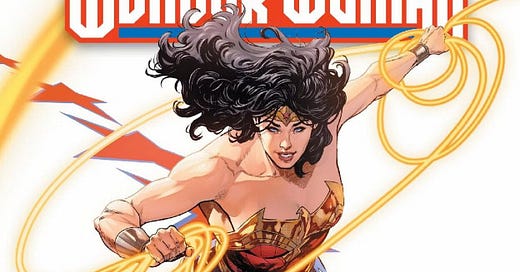The Politics of Wondering: Gender, Nationality, Race, Sexuality, and War Vis-à-Vis Tom King's WONDER WOMAN #1
“America versus Wonder Woman.”
Please note: This review will contain spoilers. Thank you.
Wonder Woman #1
“Wonder Woman: Outlaw, Part 1”
Writer: Tom King
Artist: Daniel Sampere
Colorist: Tomeu Morey
Letterer: Clayton Cowles
Editor: Brittany Holzherr
Associate Editor: Chris Rosa
Group Editor: Paul Kiminski
Publis…
Keep reading with a 7-day free trial
Subscribe to Witness to keep reading this post and get 7 days of free access to the full post archives.




